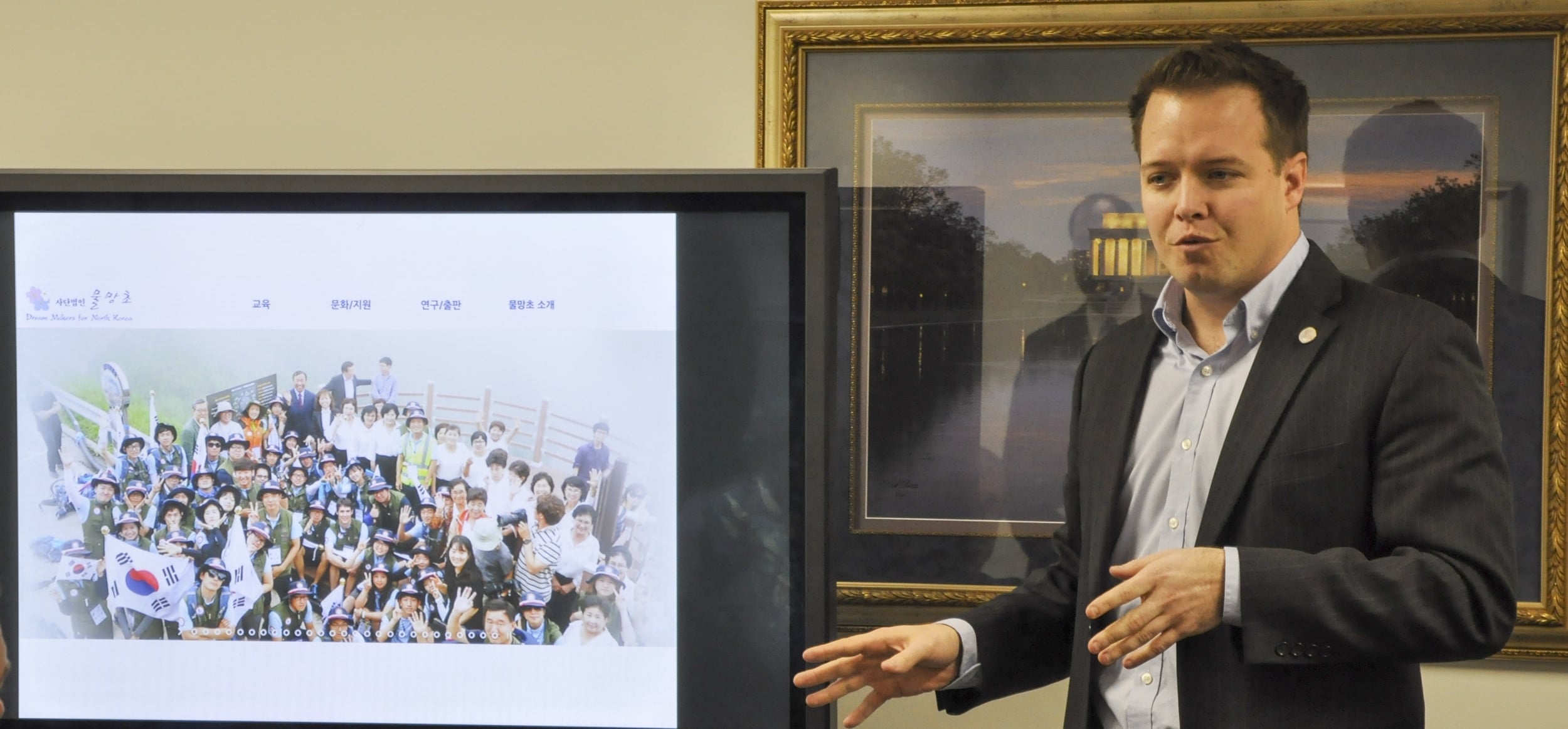I have heard the tired argument time and again: if only the U.S. were gone, there would be peace on the peninsula. If only the great powers, China, Russia, Japan, and the U.S., would let the Korean peninsula be, then the two Koreas would find peace. They would find peace through dialogue and cooperation, through a recognition of mutual benefit and shared interest--a truly win-win possibility, if ever one existed.
But my time in Korea has revealed a new reality to me. My time there taught me of the old view of the world, one that dates back to ancient Greece and the Peloponnesian Wars, the Melian dialogue that still holds true today on the Korean peninsula.
"The strong do what they can, and the weak suffer what they must," or as that would be expressed in Korean, " When the whales fight, the shrimp get crushed." The world of Gaps and Euls. Everyone wanting to be a Gap; everyone pretending not to be an Eul.
I have come to know this worldview through Korea's obsession for social status, the importance of being a Gap, a quality I greatly admire -- everybody dressed to their best when they went out, everybody polite, courteous, and orderly (for a major city) on the subway. I didn't really understand it at first, but I loved this order, this balance, this harmony, this stability of Seoul. And who would think that North Korea was just a stone's throw away, threatening to turn Seoul into a "Sea of Fire" or to "Reduce the U.S. to ashes," as they say in their domestic media. I would laugh when family and friends from the U.S. would call and ask if everything was OK. Well yeah, the U.S. and its media seemed more worked up over North Korea than the everyday Seoul salary man or woman.
But there is something I cannot wrap my head around. If North Koreans, like their brethren to the South, share this same culture of hierarchical order, balance, and harmony, then why the constant provocations? Why then do they continue to destabilize the region?
North Korea, itself, boasts one of the most hierarchical, class-based, caste systems in the world, where party membership is hereditary and class status is determined by birth. The Songbun system classifies its citizens into approximately 52 social statuses. And that's it. That is your station in life.
As many Korean experts know, Korean society's order is based, in large part, on its respect for authority, for hierarchy absolute. Knowing one's place in the hierarchy and acting accordingly is the key to cultivating harmony, balance, and stability for society. The GapEul relationship (갑을관계), as it is referenced, clearly delineates the superior (Gap) and subordinate (Eul) in every relationship. In every relationship this is clearly sorted out and acted on accordingly.
So this leaves two possibilities for understanding North Korea's behavior. North Korea lacks respect for its place in the international order. This refusal to accept its place destabilizes the international order. Either North Korea, as the tributary state of China, is doing the will of the Chinese older brother by carrying out missile launches and nuclear tests which probe and test the defense systems of America and her allies, or North Korea actually believes they are the Gap of the international order. If North Korea believes they are superior on the world stage, and as GapEul culture dictates, the superior gives orders and the subordinate follows, leaving no possibility for dialogue, discussion, and cooperation.
This is perhaps why negotiations and talks never work with North Korea. Negotiations? Cooperation? Dialogue? This is the language of the weak. The weak suffer what they must. The Melian dialogue tells us that the strong do what they will.
When will North Korea's pursuit of power satiate? When it dominates the world? North Korea's inability to grasp its position in the world order or its unwillingness to accept its rightful place explains their lack of respect for the international system that we inhabit. When will it end? With the nuclear and missile tests? When they unify the peninsula under the Juche flag? Must they first take revenge on the Japanese and the U.S.? I fear the world is no longer willing to tolerate a nuclear armed North Korea.
China is now amassing 100,000 troops along the northern border of North Korea. The U.S. has now rerouted its navy strike group led by the USS Carl Vinson aircraft carrier towards the peninsula. North Korea has been emboldened by the past 20 years of dialogue, negotiations, and the wishful thinking of western policymakers. The time for North Korea playing a Gap seems to be coming to an end. North Korea would be wise to follow its own cultural mores, if not for the stability and harmony of the international order, then to accept their place in the international order as an Eul.






